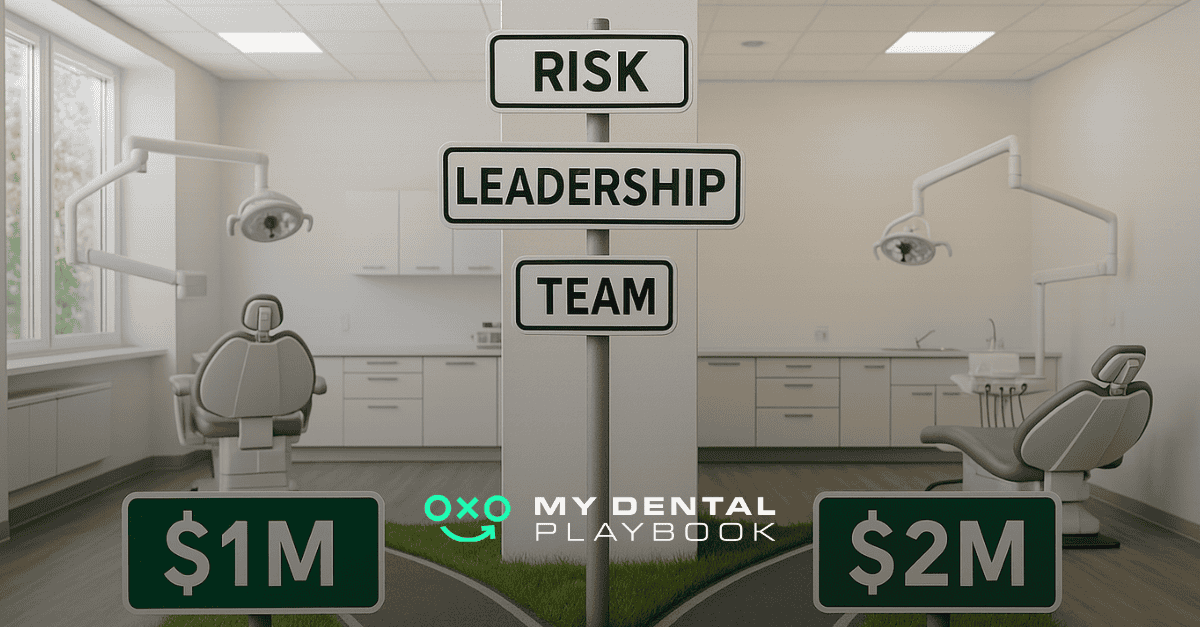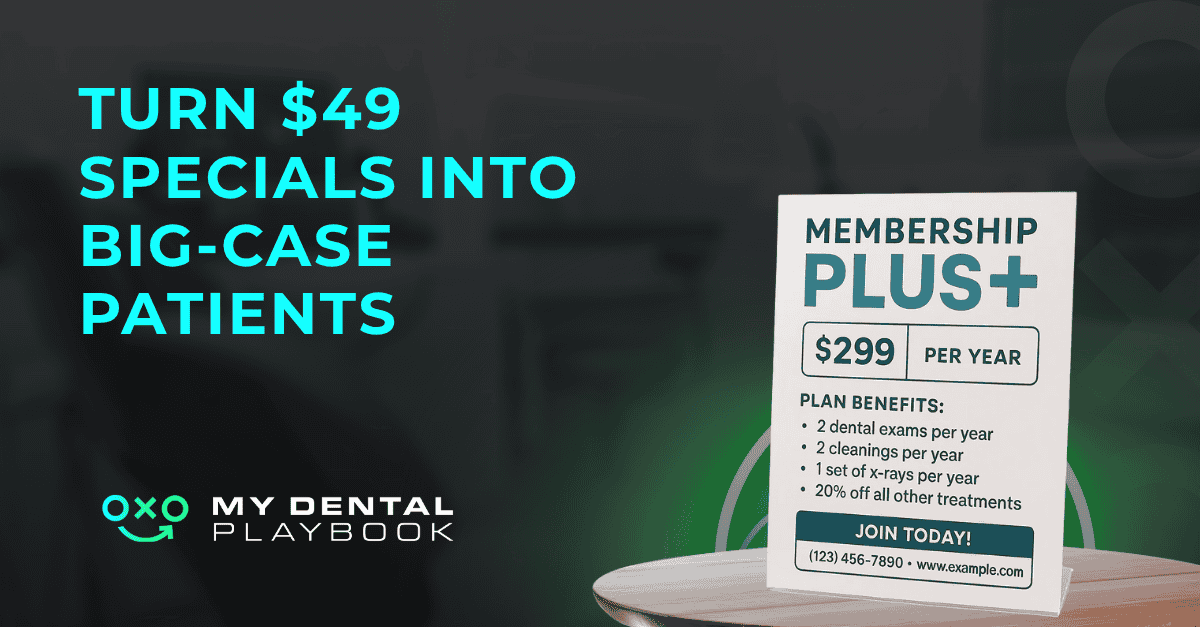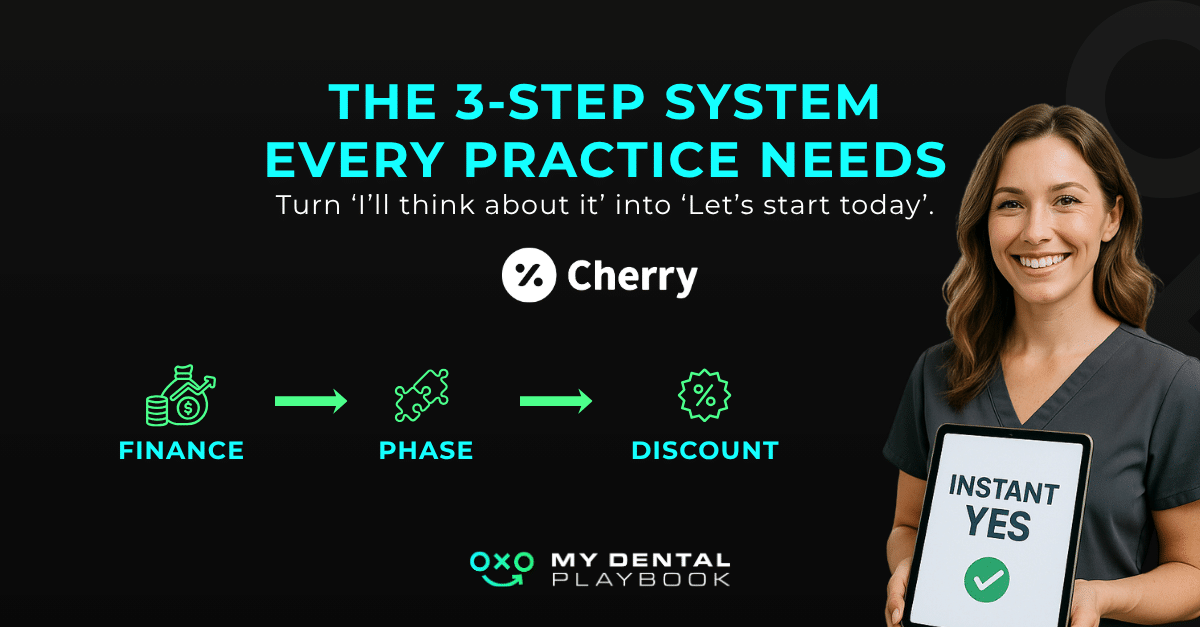Dentists don’t get into the profession to become salespeople. But if your team isn’t trained to confidently handle objections, your patients leave with untreated needs, and your production suffers. In this episode of My Dental Playbook, Dr. Blake Hamblin and I break down the most common objections in a dental practice and how his flashcard system is helping treatment coordinators and front desk teams boost case acceptance, without feeling pushy.
Why Most Objections Are Actually Buying Signals
Many dental teams freeze when they hear, “How much does this cost?” or “I need to check with my spouse.” But these aren’t rejections. They’re signals that the patient is interested but unsure.
Here’s how objections usually show up:
- “That’s expensive”
- “Does my insurance cover it?”
- “I’m just here for a cleaning”
- “I need to think about it”
Your team needs to hear these not as roadblocks but as opportunities to help the patient take the next step.
The Flashcard System: 10 Objections, One Simple Tool
Dr. Blake created a flashcard training system for his team to role-play the most common objections they face, including financial questions, insurance concerns, and scheduling delays. The goal is to make objection handling second nature.
Here’s how it works:
- One side of the card lists the objection
- The other side has a confident, patient-friendly response
- Teams run drills weekly to build comfort and confidence
This simple tool has transformed team communication and increased same-day treatment acceptance. Get access here.
Handling the Toughest Objections: Real Examples
Let’s walk through a few common objections and how to handle them:
“I need to check with my spouse.”
Response: “Totally understand. Can I ask what you think their top concern would be so I can help you address it now?”
“That sounds expensive.”
Response: “Many patients feel the same way. That’s why we offer flexible financing options so you can prioritize your health without stress.”
“Does insurance cover this?”
Response: “Insurance is helpful, but we always treat the patient first. We’ll submit everything and fight on your behalf. But we recommend the treatment that keeps your mouth healthy long-term.”
“I’m just here for a cleaning.”
Response: “Totally get it. While you’re here, we noticed [insert issue]. If it ever becomes a priority, we’re here to help.”
Quick Wins You Can Apply This Month
- Make a list of the top 10 objections your team hears
- Write confident, calm responses on the back
- Set 15 minutes aside each week to role-play them
- Praise and correct responses in real time
- Add new objections as they arise
Think Smarter
Your front desk and treatment coordinators are salespeople, whether you call them that or not. Train them like it. Equip them to lead patients through uncertainty with empathy and clarity. That’s how you grow.
Final Thought
Objections are not the enemy. They’re the beginning of trust. The better your team gets at hearing and addressing them, the more your patients say yes to treatment and the healthier your practice becomes.
Final Checklist
- Do you know your top 10 objections?
- Does your team have prepared responses?
- Are you role-playing objections weekly?
- Do you track case acceptance metrics?
- Is your front desk trained in scheduling objections?
- Are you making it easy for patients to say yes?







